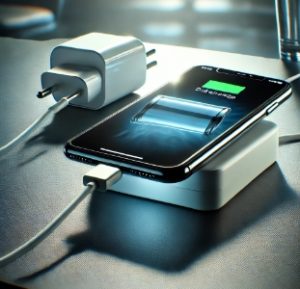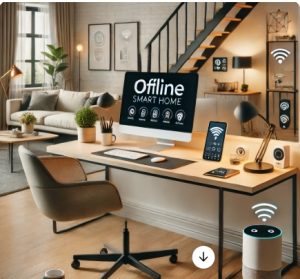Can you overcome Digital Addiction Habits? If you’ve ever picked up your phone just to check one thing and suddenly realized an hour has passed, you’re not alone. Digital addiction is more common than ever, with studies showing that in 2024, the average person spends over 7 hours per day on screens.
This constant connection affects mental health, sleep, productivity, and even relationships. But the good news? Breaking free from digital addiction is possible. Let’s explore why technology is so addictive, how it impacts us, and what you can do to regain control.

What Is Digital Addiction?
Digital addiction refers to the compulsive overuse of digital devices, especially smartphones, social media, and the internet. It’s not just about entertainment—it’s the dopamine-driven cycle that makes it hard to stop.
Several studies found that:
- 56% of Gen Z respondents in the United States felt addicted to their smartphones.
- 47% of teens say they feel “addicted” to their smartphones, and 67% of parents say their teens are addicted.
- Americans check their phones 144 times a day and 71% say they check it within 10 minutes of waking up.
With technology woven into every aspect of life, distinguishing between healthy use and addiction is harder than ever.
Why Is Technology So Addictive?
1. Dopamine & Instant Gratification – Apps like TikTok, Instagram, and YouTube are designed to keep you scrolling. Every like, comment, or notification gives a small dopamine boost, reinforcing the habit.
2. Endless Scrolling & Autoplay – Social media feeds and video platforms use infinite scroll and autoplay to make stopping difficult. Before you know it, hours have passed.
3. Fear of Missing Out (FOMO) – Many people feel anxious when they’re not online, worrying about missing news, trends, or social interactions.
4. Notifications & Alerts – The constant pings, vibrations, and pop-ups create an addiction loop, making it nearly impossible to ignore your device.
How Digital Addiction Affects Your Life
1. Mental Health Conditions Particularly among teenagers and young adults, excessive screen usage is associated with increased anxiety, despair, and low self-esteem.
2. Sleep Disorders: According to a National Sleep Foundation research, exposure to blue light before bed lowers melatonin , which causes insomnia and poor sleep quality.
3. Lower Productivity – Digital distractions cost employees an average of 2.5 hours of productivity per day, according to a 2024 study by Harvard Business Review.
4. Strained Relationships – Research shows that people feel less connected to those around them when their partner or family members are glued to their screens.
How to Overcome Digital Addiction
1. Track Your Screen Time – Use built-in features like iPhone’s Screen Time or Android’s Digital Wellbeing to monitor your daily usage. Set limits for social media, gaming, and entertainment apps.
2. Turn Off Non-Essential Notifications – Disable unnecessary alerts from social media, emails, and messaging apps to reduce the urge to check your phone constantly.
3. Establish No-Screen Zones – Keep phones out of the bedroom to improve sleep quality. Create tech-free zones during meals and social gatherings.
4. Set App Time Limits – Apps like Freedom, StayFocusd, and Offtime block addictive apps after a set period, helping reduce excessive usage.
5. Replace Digital Habits with Offline Activities – Instead of scrolling, try reading a book, exercising, meditating, or engaging in a hobby that doesn’t involve screens.
6. Take Regular Digital Detox Breaks – Dedicate at least one day per week to a full digital detox. Turn off your phone and focus on real-world interactions.
7. Practice Mindful Social Media Use – Unfollow accounts that make you feel negative, and set a clear purpose before opening any app to avoid mindless scrolling.
When to Seek Professional Help
 If digital addiction starts affecting your daily life, relationships, or mental health, seeking professional help is important. Therapists and digital detox programs can offer personalized solutions.
If digital addiction starts affecting your daily life, relationships, or mental health, seeking professional help is important. Therapists and digital detox programs can offer personalized solutions.
Technology is a powerful tool, but when overused, it can take control of your life. Using technology to improve your life without allowing it to take over is crucial. You may overcome your digital addiction and regain your time and wellbeing by establishing limits, monitoring your screen usage, and implementing little habit modifications.








